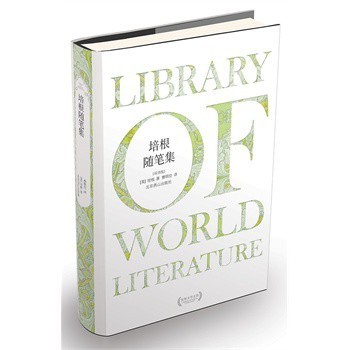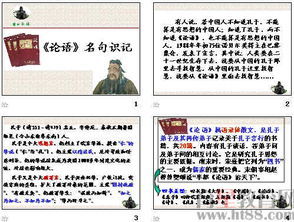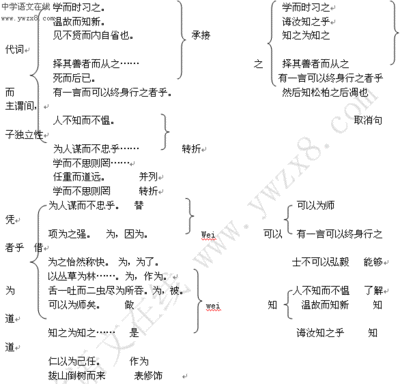Esicq
欣赏:曹明伦译培根《论财富》评点译文:论美(曹明伦译)作者:宇宙死寂之前人的
Of Riches
by Francis Bacon
I cannot call riches better than the baggage of virtue. The Romanword is better, impedimenta. For as the baggage is to an army, sois riches to virtue. It cannot be spared, nor left behind, but ithindereth the march; yea, and the care of it, sometimes loseth ordisturbeth the victory. Of great riches there is no real use,except it be in the distribution; the rest is but conceit. So saithSolomon, Where much is, there are many consume it; and what haththe owner, but the sight of it with his eyes? The personal fruitionin any man, cannot reach to feel great riches: there is a custodyof them; or a power of dole, and donative of them; or a fame ofthem; but no solid use to the owner. Do you not see what feignedprices, are set upon little stones and rarities? and what works ofostentation are undertaken, because there might seem to be some useof great riches? But then you will say, they may be of use, to buymen out of dangers or troubles. As Solomon saith, Riches are as astrong hold, in the imagination of the rich man. But this isexcellently expressed, that it is in imagination, and not always infact. For certainly great riches, have sold more men, than theyhave bought out. Seek not proud riches, but such as thou mayest getjustly, use soberly, distribute cheerfully, and leave contentedly.Yet have no abstract nor friarly contempt of them. But distinguish,as Cicero saith well of Rabirius Posthumus, In studio reiamplificandae apparebat, non avaritiae praedam, sed instrumentumbonitati quaeri. Harken also to Solomon, and beware of hastygathering of riches; Qui festinat ad divitias, non eritinsons.
笔者认为财富不过是德行的包袱。包袱一词用拉丁字眼impedimenta更好,因为财富之于德行,不啻辎重之于军队。辎重不可缺少,亦不可滞后,但它每每有碍行军,有时为顾辎重甚至会贻误战机或妨碍胜利。巨额财富无什么真正的用处,除修斋布施之外,其他用途均属幻想。因此所罗门有言:财物越多,食者越众;除了饱饱眼福,财主得何益呢?任何人的个人享用都不可能达到非要巨额钱财的地步,有巨额钱财者只是保管着钱财,或拥有施舍捐赠的权利,或享有富豪的名声,但钱财于他们并无实用的用处。君不见有人为几粒石子或罕见之物开出天价?君不见有人为使巨额财富显得有用而着手某些铺张的工程?不过读者也许会说,钱财可以替人消灾化难,正如所罗门之言:钱财在富人心里就像一座城堡。然此言正好道破天机,那城堡是在心里,而绝非在现实之中;因为不可否认,钱财替人招灾致祸的时候远远多于替人消灾化难的时候。别为炫耀而追求财富,只挣你取之有道、用之有度、施之有乐且遗之有慰的钱财。但也别像修道士那样不食人间烟火,对金钱全然不屑一顾。只是挣钱要分清有道无道,就像西赛罗当年替波斯图穆斯辩护时所说:他追求财富增加显然不是为满足其贪婪之心,而是为了得到行善的资力。还应听从所罗门的教诲,别急欲发财,“急欲发财者将失去其清白”。
The poets feign, that when Plutus (which is Riches) is sent fromJupiter, he limps and goes slowly; but when he is sent from Pluto,he runs, and is swift of foot. Meaning that riches gotten by goodmeans, and just labor, pace slowly; but when they come by the deathof others (as by the course of inheritance, testaments, and thelike), they come tumbling upon a man. But it mought be appliedlikewise to Pluto, taking him for the devil. For when riches comefrom the devil (as by fraud and oppression, and unjust means), theycome upon speed. The ways to enrich are many, and most of themfoul. Parsimony is one of the best, and yet is not innocent; for itwithholdeth men from works of liberality and charity. Theimprovement of the ground, is the most natural obtaining of riches;for it is our great mother's blessing, the earth's; but it is slow.And yet where men of great wealth do stoop to husbandry, itmultiplieth riches exceedingly. I knew a nobleman in England, thathad the greatest audits of any man in my time; a great grazier, agreat sheep-master, a great timber man, a great collier, a greatcorn-master, a great lead-man, and so of iron, and a number of thelike points of husbandry. So as the earth seemed a sea to him, inrespect of the perpetual importation.
在诗人的虚构中,财神普路图斯受天帝朱庇特派遣时总是磨磨蹭蹭,而受冥王普路托差遣时却跑得飞快。这段虚构的寓意是,靠诚实和汗水致富通常很慢,但靠他人的死亡发财(如继承遗产之类)则快如钱财从天而降。但若把普路托视为魔鬼,这种虚构也恰如其分;因为当财富来自魔鬼时(如靠欺诈、压迫和其他不公正的手段获取财富),的确来得很快。致富的途径千条万条,可多半都是邪路歪道;其中吝啬最为清白,但也并非清白无瑕,因为它阻止世人乐善好施。利用土地致富是最合理的生财之道,因土地提供的财富乃大地之母的恩赐,只是走这条路致富较慢。但已有万贯家财者若肯屈尊经营土地,其家财定会成倍增加。笔者曾识一位英格兰贵族,他当时需审计的账目为全国之最,因为他拥有大片的麦田、林场、牧场和羊群,还拥有巨大的煤矿、铅矿、铁矿和诸如此类的产业,所以大地于他就像是一片财源滚滚且永不枯竭的海洋。
It was truly observed by one, that himself came very hardly, to alittle riches, and very easily, to great riches. For when a man'sstock is come to that, that he can expect the prime of markets, andovercome those bargains, which for their greatness are few men'smoney, and be partner in the industries of younger men, he cannotbut increase mainly. The gains of ordinary trades and vocations arehonest; and furthered by two things chiefly: by diligence, and by agood name, for good and fair dealing. But the gains of bargains,are of a more doubtful nature; when men shall wait upon others'necessity, broke by servants and instruments to draw them on, putoff others cunningly, that would be better chapmen, and the likepractices, which are crafty and naught. As for the chopping ofbargains, when a man buys not to hold but to sell over again, thatcommonly grindeth double, both upon the seller, and upon the buyer.Sharings do greatly enrich, if the hands be well chosen, that aretrusted. Usury is the certainest means of gain, though one of theworst; as that whereby a man doth eat his bread, in sudore vultusalieni; and besides, doth plough upon Sundays. But yet certainthough it be, it hath flaws; for that the scriveners and brokers dovalue unsound men, to serve their own turn. The fortune in beingthe first, in an invention or in a privilege, doth cause sometimesa wonderful overgrowth in riches; as it was with the first sugarman, in the Canaries. Therefore if a man can play the truelogician, to have as well judgment, as invention, he may do greatmatters; especially if the times be fit. He that resteth upon gainscertain, shall hardly grow to great riches; and he that puts allupon adventures, doth oftentimes break and come to poverty: it isgood, therefore, to guard adventures with certainties, that mayuphold losses. Monopolies, and coemption of wares for re-sale,where they are not restrained, are great means to enrich;especially if the party have intelligence, what things are like tocome into request, and so store himself beforehand. Riches gottenby service, though it be of the best rise, yet when they are gottenby flattery, feeding humors, and other servile conditions, they maybe placed amongst the worst. As for fishing for testaments andexecutorships (as Tacitus saith of Seneca, testamenta et orbostamquam indagine capi), it is yet worse; by how much men submitthemselves to meaner persons, than in service.
有人说他挣小钱很难赚大钱却很容易,此话一点不假。因为一个人若像他那样拥有雄厚的资金,便可囤积居奇,恃强凌弱并与人合伙经营年轻人的行当,这样他非赚大钱不可。一般行当和职业挣的是老实钱,其挣钱手段主要有二:一是勤劳奋勉,二是童叟无欺。但靠讲盘议价而盈利,其公道就令人生疑;凡乘人急需而漫天要价,凡贿赂雇员和代理人而招揽生意,或是耍手腕排挤其他可能更公平的商人等等,都是奸诈卑劣之举。至于做投机买卖,即购物并非为自己所用,而是为了再高价出售,这对原卖主和二手顾客都可谓敲诈。如果选择的搭档可靠,合伙经营通常有大利可图。放债取息乃最可靠的发财之路,但也是最有害的邪路,因放债取息者不仅让别人流汗自己吃面包,而且还在安息日盈利。不过放债取息虽说可靠,但也并非没有风险,因公证人和中间人常常为了私利替没有偿还能力的人作信誉担保。若有幸率先获得某项发明或某项专利,有时候也可大发横财,如最先在加那利群岛建糖厂的那人。因此,一个人若能充当真正的逻辑学家,即善于发现又善于判断,那他就可以大捞一把,尤其是遇上走运得幸之时。靠固定收入生活者终归难成巨富,而倾其所有投机者又往往会倾家荡产;所以最好是有份固定收入作投机冒险的后盾,这样即使投机失败也有退路。在没有法律限制的地方,垄断商品并囤积待售乃发财之重要手段,在当事者能预见何种商品将供不应求,从而事先囤积时更是如此。出仕受禄固然最为风光,但若俸禄之获取是靠阿谀奉承、偷合苟容或其它奴颜婢膝的行径,那这种钱亦可列为最卑污之类。至于攫取遗嘱及遗嘱执行人身份(像塔西佗所说的塞内加那样用网捕捞遗嘱和遗孤监护权),这比前者更为卑污,因前者讨好的毕竟是公侯君王,而后者得讨好一些卑鄙小人。
Believe not much them that seem to despise riches; for they despisethem that despair of them; and none worse when they come to them.Be not penny-wise; riches have wings, and sometimes they fly awayof themselves, sometimes they must be set flying, to bring in more.Men leave their riches, either to their kindred, or to the public;and moderate portions, prosper best in both. A great state left toan heir, is as a lure to all the birds of prey round about, toseize on him, if he be not the better established in years andjudgment. Likewise glorious gifts and foundations, are likesacrifices without salt; and but the painted sepulchres of alms,which soon will putrefy, and corrupt inwardly. Therefore measurenot thine advancements, by quantity, but frame them by measure: anddefer not charities till death; for, certainly, if a man weigh itrightly, he that doth so, is rather liberal of another man's, thanof his own.
别太相信那些看上去蔑视财富的人,他们之所以蔑视财富乃因他们对发财已不抱希望;他们一旦发财仍然会惜财。别在小钱上精打细算,须知钱财长有翅膀,有时它们会自己飞走,有时你得放它们飞走,以便带来更多财富。人们通常把财产留给儿女或捐给社会,但或留或捐都以数额适中为妙。若子嗣年少,尚缺乏见识,留给他一大份家业不啻是留下了一块诱饵,将招来各种猛禽对他进行围攻。同样,为虚名而馈赠的捐款和基金就像没加盐的祭品,不过是善行之涂金抹彩的墓冢,里面很快就会开始腐烂。因此勿用数量作你捐赠的标准,而要用标准来规定你捐赠的用途;并且不可把捐赠之事拖到弥留之时,因平心而论,死到临头才捐赠那无疑是在慷他人之慨。
评点译文:论美(曹明伦译)作者:宇宙死寂之前人的
论 美
[英]培根 著曹明伦译次先生批改

善犹如宝石,以镶嵌自然为美;而善附于美者无疑最美,不过这美者倒不必相貌俊秀[“相貌俊秀”改为“俊美清秀”,如何?],只须气度端庄,仪态宜人。世人难见绝美者兼而至善,仿佛造物主宁愿专心于不出差错,也不肯努力创造出美善兼备之上品。故世间美男子多有身躯之完美而无精神之高贵,多注重其行而不注重其德。但此论并非放之四海而皆准,因古罗马皇帝奥古斯都和韦斯帕芗[“古罗马皇帝奥古斯都”,不如径作“恺撒大帝”醒目。此处可译作“恺撒大帝和其继任者韦斯帕芗”]、法兰西国王[培根原文有法语“bel”,特别点出其“漂亮”,要译出,作“‘俊人儿’或“‘美男子’”并带引号,可否?]腓力四世[“四世”原文未出现,可放在注中,又“Philip”译法国国王,一般史书作“菲利普”]、英格兰国王爱德华四世、古雅典将军亚西比德、以及伊朗国王伊思迈尔一世[可加逗号“,”,因并列句太长]皆为志存高远者,但也都是当时的冠王美男。至于美女,天生容貌[“容貌”改为“丽质”,如何?]胜过粉黛胭脂[“胭脂”改为“重施”,如何?],而优雅举止又胜过天生容貌[改如上例]。优雅之态乃美之极致,非丹青妙笔所能绘之,亦非乍眼一看所能识之。[此三句很好]绝色者之形体比例定有异处。世人难断阿佩利斯[①]和丢勒[②]谁更可笑,后者画人像总是按几何比例[“总是按几何比例”,可否改为“对比例亦步亦趋”],前者则将诸多面孔的最美之处汇于一颜。[此句可否译作“前者则能融诸美于一端”?][③]笔者以为除画家本人之外,此等画像谁也不会喜欢[“谁也不会喜欢”,可否改为“人见人厌”?]。虽说笔者认为画家可以画出比真颜更美的容貌,但他必须得靠神来之笔,而非凭藉什么规则尺度,这就像音乐家[为与画家相对,此处“音乐家”可简称“乐师”]谱写妙曲得靠灵感一般。世人可见这样的面庞,若将其五官分而视之则一无是处,但合在一起却堪称花容玉颜。[此二句句式亦佳]倘美之要素果真在于仪态之优雅,那长者比少者更美就不足为奇,须知[pulchorum autumnuspulcher,宜把拉丁文原文列出,注明汉语]美人之秋亦美[此句是关键处,可否意译:美人暮年富于成熟之美。因为“秋”代表成熟。]。假如不把青春视为优雅得体之补足,年少者多半都难称俊秀。美貌如夏日鲜果[此处宜顿一下,加逗号“,”]易腐难存,而且[“而且”可省]它每每使年少者放荡[“放荡”后可加“不羁”],并给年长者几分难堪[“难堪”就不及水译“愧悔”,因为语意模糊。此句可译作:让年长者愧悔莫名。];但笔者开篇所言仍然不谬,[此处前宜加“虽则如此,”总结前文之义,开启“但”以下]若美貌依附于善者,便会使善举光彩夺目,使恶行无地自容。[结尾结得掷地有声!]
[①]阿佩利斯(Apelles)是公元前4世纪希腊画家,曾为马其顿国王腓力二世和亚历山大大帝的宫廷画师,善画肖像。
[②]丢勒(Albrecht Dürer,1471~1528)乃德国画家,著有《人体比例研究》一书。
[③]培根在此也许误将阿佩利斯记成了另一名古希腊画家宙克西斯(Zeuxis,前464~前389),相传宙克西斯曾汇五位美女的长处于一身,绘成海伦像。
 爱华网
爱华网


